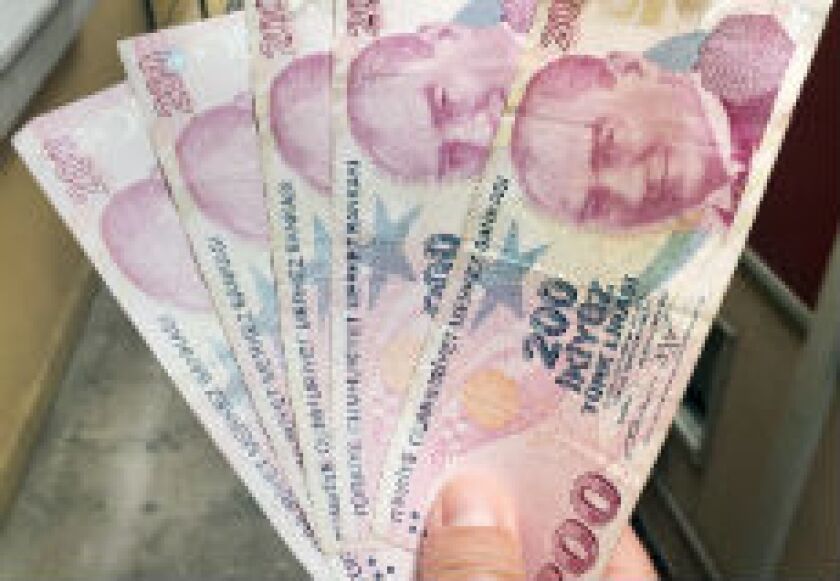Now is the time to dive in for lenders and investors seeking to increase their exposure to Turkey. Four of the top tier Turkish banks are set to tap the market in coming months in the first refinancing season of the year, providing the perfect opportunity to receive rewarding margins for (relatively) low risk, following a grim year for one of the former EM superstars.
As borrowers begin to enter the market to refinance existing loans, including Akbank, Garanti Bank, Yapi Kredi and Isbank, many of whom are likely to seek amounts of up to $1bn, lenders who have not yet tasted a slice of the Turkish debt delight, or those who were deterred by the increased risk surrounding Turkey in recent months, should pay close attention.
Pricing for the upcoming refinancing season is likely to remain wide as the country returns to financial normalcy. As such, this may be the last chance to grab a bargain.
The second refi season last year coincided with the intensification of the Turkey-US diplomatic spat over the imprisoned US pastor, Andrew Brunson, which resulted in sanctions, and the ensuing currency crisis, which peaked on August 14 as the Turkish lira reached a low of 6.95 to the dollar.
Loan margins blew wider, tempting banks to participate in transactions despite the increased credit risk.
All in pricing on Akbank’s September refi jumped to 275bp over Libor and 265bp over Euribor for the dollar and euro tranches respectively, compared with its $1.2bn March 2018 deal, which saw all in pricing of 130bp over Libor and 120bp over Euribor for two 367 day tranches, and 210bp over Libor for a two year dollar tranche.
However, since then, Turkey's central bank has shown initiative in both tackling the currency depreciation and resolving issues with the US, allowing the lira to strengthen to 5.35 to the dollar. Market participants appreciate the renowned resilience, agility and experience of the tightly regulated Turkish banking system — a big plus compared with other emerging market financial offerings.
One only has to look at the success of loan trading and bond issuances in recent months to see that Turkish capital markets are in a far better place than they were only months ago.
Secondary loan spreads have tightened substantially in past months and the loan market is rallying. When Akbank launched, secondary Akbank loans were quoted around 500bp-600bp. Since then, spreads have tightened to around 300bp-320bps — and a loans trader said there were “loads of buyers” coming to the market.
But there’s still a chance to get in. Margins are unlikely to fully tighten to pre-crisis levels just yet, given that Akbank’s loan in March was signed when the lira was strong, trading at around 3.98 to the dollar. But as the currency continues to recover and climb against the dollar, the next refi season may provide the last opportunity to get a hold of Turkish debt at wide margins.
Two Turkish bond issuances in the past two weeks have similarly demonstrated that capital markets are full of appetite for Turkish debt. The sovereign issued a $2bn 10 year on January 9 at 7.625% and Turk Eximbank issued a $500m five year on 16 January at 8.25%, both of which performed well after issue.
But still, both issues offered yields nearly double their last prints before the crisis. The sovereign issued a $2bn 10 year in January 2018, with a coupon of 5.125%. Turk Eximbank issued a $500m five year in September 2017, with a coupon of 4.25%.
A head of global loan syndicate said, “Erdogan and the central bank rectified the issue and re-opened the bond market, which has helped to stabilise the situation.”
While the economic situation remains imperfect and geopolitics continues to be a thorn in Turkey’s side, the market consensus maintains that Turkey and its banking system possess the tools to isolate risk for lenders as much as possible.
Turkey remains far from perfect, or risk-free, but recent months have demonstrated that both borrowers have the appetite for financing, and capital markets have an appetite for Turkish debt.
For those seeking high returns and low risk, now is the time to get a slice of the Turkish debt delight.

